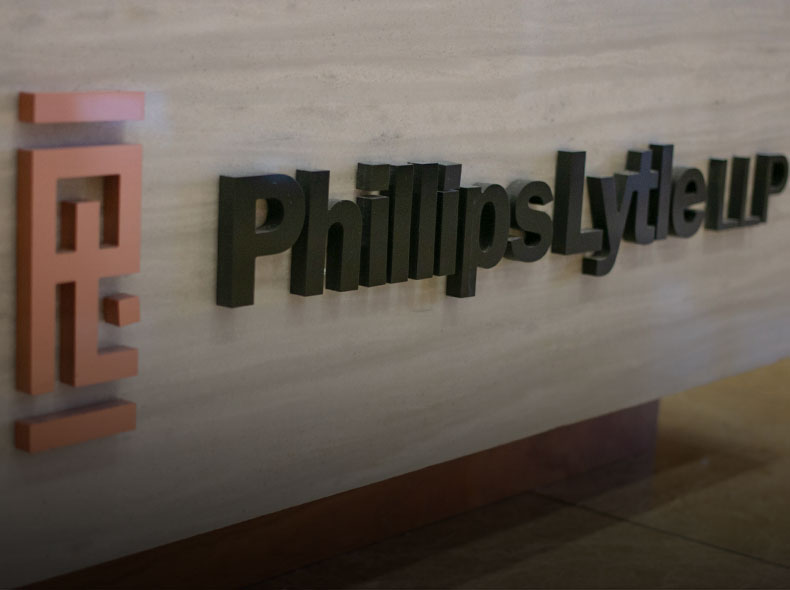Class Actions Taking Aim at Paycheck Protection Program Lenders
While the U.S. economy slowly emerges from lockdown, plaintiff law firms are busily preparing a wave of COVID-19-related class action lawsuits, which are anticipated to flood the courts. Early examples of this coming wave are class actions against lenders, such as JPMorgan Chase, Citibank, Bank of America and Wells Fargo, which participated in administering billions of dollars of emergency financial relief from the federal government.
These new class actions concern the Paycheck Protection Program (PPP), included in the Coronavirus Aid, Relief, and Economic Security (CARES) Act (Public Law 116-136), enacted March 27, 2020. The PPP relies on private lenders to facilitate government-backed loans to small businesses negatively impacted by the COVID-19 emergency. Although the CARES Act allocated $349 billion for partially forgivable loans to small businesses, this funding was exhausted within the Program’s first two weeks. An additional $310 billion in PPP funding was passed on April 24, 2020, via the PPP and Health Care Enhancement Act.
The PPP was intended to provide loans on a first-come, first-served basis, but news outlets reported that numerous publicly traded and larger businesses received PPP loans, while smaller businesses ran into difficulties applying for PPP loans for a variety of reasons. In the wake of these news reports, class action lawsuits against PPP lenders were quickly filed across the U.S. and are expected to increase in number.
The scope of the current class actions, and the theories of liability, have greatly varied and will likely result in divergent outcomes. Pending cases include:
- In a nationwide class action, filed in the U.S. District Court for the District of Maryland on April 3, 2020, against defendants Bank of America Corporation and Bank of America, N.A., plaintiffs asserted a claim directly under the CARES Act, alleging that the lenders violated the statute by allowing only businesses with an existing lending relationship with the bank to apply for a PPP loan.1 Importantly, on April 13, 2020, the Court denied the plaintiffs’ motion for a temporary restraining order and preliminary injunction, holding that the CARES Act did not give the plaintiffs a private cause of action to challenge a lender’s conduct. The decision is currently under appeal at the U.S. Court of Appeals for the Fourth Circuit.
- Another putative nationwide class action was filed in the U.S. District Court for the Central District of California on April 20, 2020, against defendants JPMorgan Chase & Co.; JPMorgan Chase Bank, N.A.; Bank of America, N.A.; Wells Fargo Bank, N.A.; and Citibank, N.A., and alleges antitrust claims under the Sherman Act and Clayton Act, as well as claims of negligence and negligent misrepresentation. The complaint asserts that lenders engaged in anti-competitive conduct when each lender limited PPP applications exclusively to the lender’s existing customers, and by prioritizing the loan applications of certain businesses over others.2 On April 24, 2020, the Court denied the plaintiffs’ ex parte motion for a temporary restraining order and preliminary injunction, based upon the plaintiffs’ failure to provide the defendants with adequate notice and failure to show a likelihood of irreparable injury.
- Four putative statewide class actions were filed in the U.S. District Court for the Central District of California on April 19, 2020, against defendants Wells Fargo & Company and Wells Fargo Bank, N.A.;3 JPMorgan Chase & Co. and JP Morgan Chase Bank, N.A.;4 U.S. Bancorp. and U.S. Bank, N.A.;5 and Bank of America Corporation and Bank of America, N.A.6 Each of these lawsuits allege that the lenders, by prioritizing PPP loan applications from larger businesses over smaller businesses – and larger loans over smaller loans – engaged in fraudulent concealment, unlawful business practices and false advertising in violation of the California Unfair Competition Law.
Given the thousands of lenders and borrowers participating in the PPP, and the evolving guidance from the federal government regarding the administration of the Program, numerous class action lawsuits based upon varying theories and different federal and state laws are expected to be filed in the coming months.
Careful analysis of the rulings in the earliest of these class actions is critical preparation for lenders that may face the coming wave. Phillips Lytle has extensive experience representing financial institutions in class action litigations, and is well-positioned to develop strategic opposition against PPP-related class actions and risk mitigation measures.
Additional Assistance
If you would like more information regarding these class action lawsuits, or assistance with a lawsuit your financial institution may be facing, please contact a member of the Class Action Practice Team, the Coronavirus (COVID-19) Response Team, or the Phillips Lytle attorney with whom you have a relationship.
- Profiles, Inc. et al. v. Bank of America Corp. et al., No. 1:20-CV-00894 (D. Md. 2020).
- Legendary Transport, LLC v. JP Morgan Chase & Co. et al., No. 2:20-CV-03636 (C.D. Cal. 2020).
- BSJA, Inc. et al. v. Wells Fargo & Co. et al., No. 2:20-CV-03588 (C.D. Cal. 2020).
- Cyber Defense Group, LLC et al. v. JPMorgan Chase & Co., No. 2:20-CV-03589 (C.D. Cal. 2020).
- Law Office of Irina Sarkisyan, Inc. et al. v. U.S. Bancorp. et al., No. 2:20-CV-03590 (C.D. Cal. 2020).
- Law Office of Sabrina Damast, Inc. et al. v. Bank of America Corp. et al., No. 2:20-CV-03591 (C.D. Cal. 2020).
